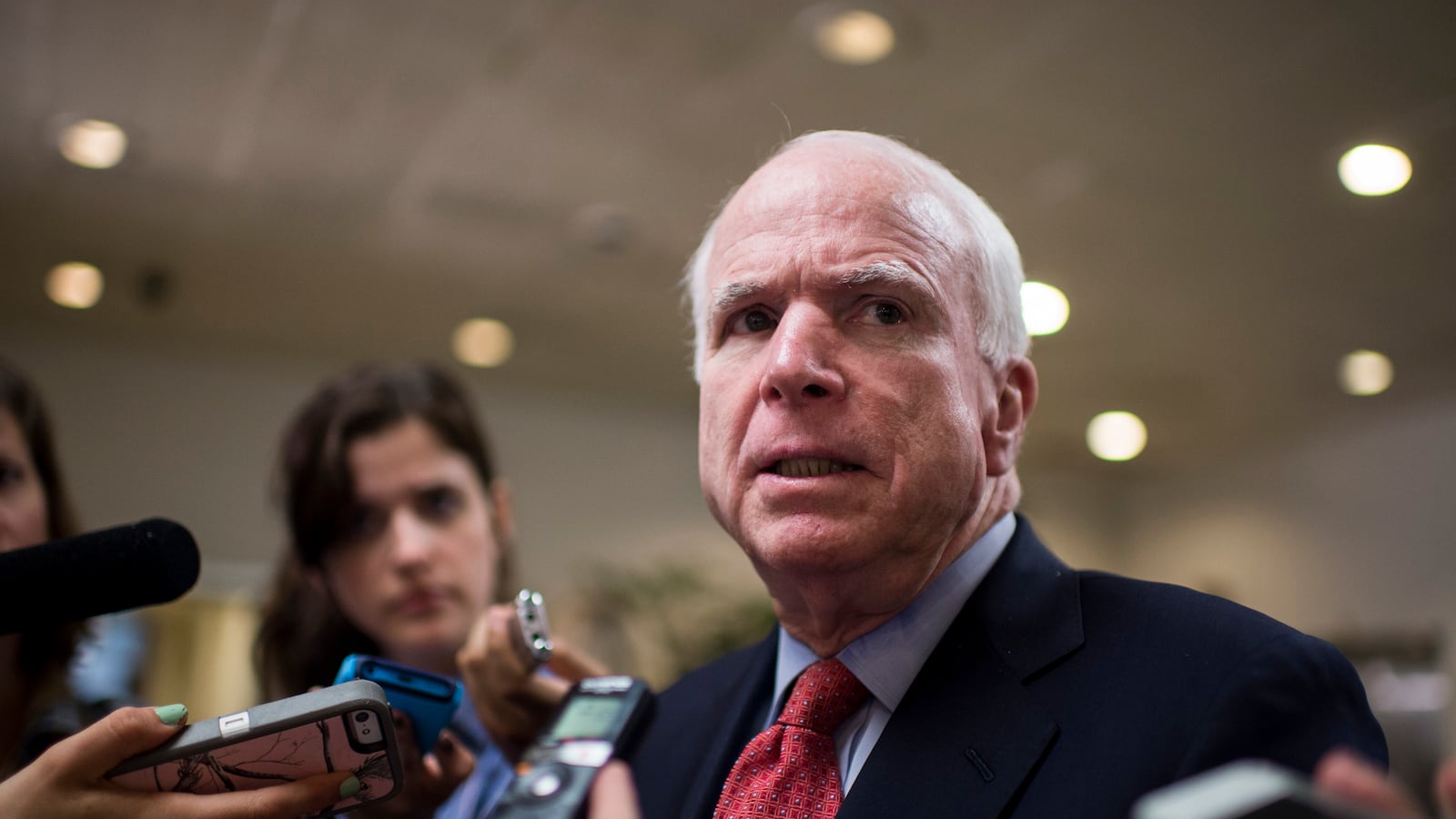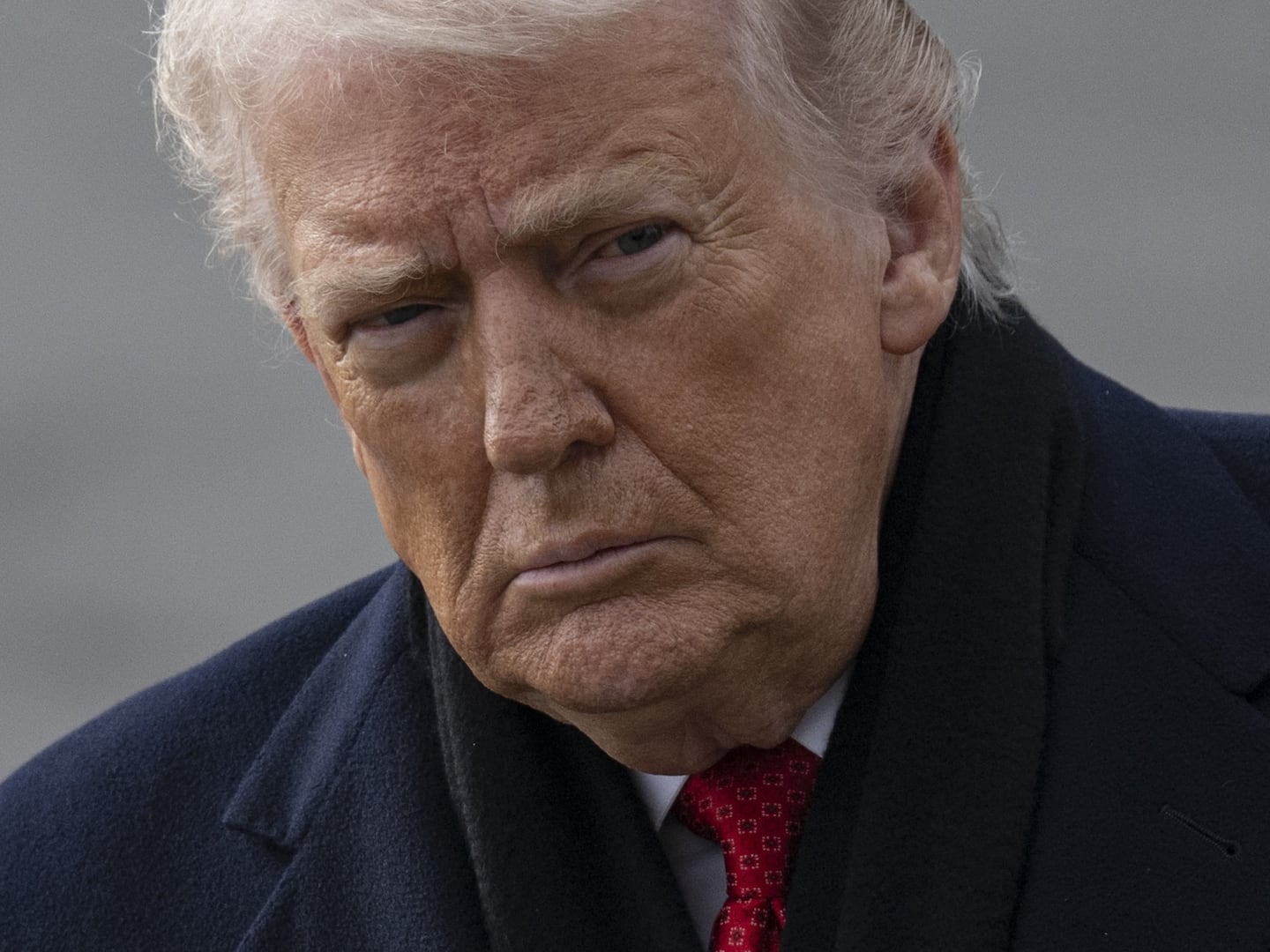President Obama’s limited strikes on ISIS in northern Iraq are “pinpricks” that are “meaningless” and “worse than nothing,” according to one of his fiercest foreign policy critics, Sen. John McCain.
By committing U.S. military forces to fight again in Iraq while explicitly limiting the mission to protection of American personnel and Iraqi minorities, Obama has failed to come up with a plan that has any hope of stopping the ISIS advances across Iraq and Syria, said McCain. It’s a position that puts him somewhat at odds with other Republicans, who are offering cautious support for the airstrikes in Iraq – and concern that the president doesn’t have a comprehensive strategy to combat the growing threat of ISIS..
McCain, a consistent advocate for the application of American military power around the world, has long pushed for greater U.S. involvement in Iraq. But these strikes Friday were not what McCain had in mind.
“This is a pinprick,” McCain told The Daily Beast in an interview Friday, about the two 500-pound smart bombs U.S. airplanes dropped on ISIS convoys Friday. The vehicles were approaching Erbil, the capital city of Iraqi Kurdistan, were many U.S. diplomatic and military personnel reside.
“It’s almost worse than nothing because I fear the president is threatening and then he won’t follow through,” said McCain. “It’s the weakest possible response and we cannot allow them to take Erbil. What [the administration has] done so far is almost meaningless.”
ISIS forces had come so close to Erbil that the city was in range of the Howitzer artillery cannons that ISIS possesses. McCain said those were U.S. weapons that ISIS stole during its plundering of Mosul. ISIS is also driving around in U.S. tanks, Humvees, and even aadvanced armored vehicles known as MRAPs. Meanwhile the Kurdish Peshmura fighting them have only older, less-sophisticated Russian made weapons, McCain said.
“[Obama] had to do [strike] because of the proximity of the ISIS Howitzers to our defensive areas and our own people,” he said.
McCain praised the administration for dropping urgent humanitarian aid on Mount Sinjar to feed thousands of starving Yazidi minorities who are surrounded by ISIS on all sides, but there’s no telling how long that mission might need to continue because there’s no prospect ISIS’s advances will halt without even more U.S. action, he said.
He is calling for more U.S. air strikes against ISIS in Iraq and Syria, as well as the urgent arming and training of the Kurdish Peshmerga. Until that happens, ISIS will continue to succeed militarily, McCain said.
“You’ve got to take the offensive against ISIS,” he said. “We are allowing them to freely move back and forth. The targets are easily identifiable. You are not going to begin to address the ISIS problem until you take out their enclaves in Syria.”
President Obama badly underestimated ISIS, such has when he called them a “JV” team wearing Lakers jerseys back in January, McCain said. But overall, Obama was committed to his campaign promise to leave Iraq as well as his overall drive to reduce U.S. involvement in conflicts abroad.
“We are paying the price for inaction and we are paying the price for withdrawal,” said McCain. “[Doing more] would contradict some of the fundamentals of [Obama’s] national security policy. But it’s just tragic.”
Other top Republicans have given tenuous support to Obama’s decision to strike in Iraq while also expressing skepticism that the plan would produce good outcomes.
"I regret the situation in Iraq has devolved to where it is and the many decisions and circumstances that have led us to this point,” said Senate Foreign Relations Committee Ranking Republican Bob Corker in a statement. “While I support the administration's short-term actions to respond to the current crisis, I expect them to lay out in the coming days the objectives they hope to achieve and the related time frame.”
House Speaker John Boehner said: “The president’s authorization of airstrikes is appropriate, but like many Americans, I am dismayed by the ongoing absence of a strategy for countering the grave threat ISIS poses to the region.”
White House Press Secretary Josh Earnest Friday declined to say how long the U.S. military mission against ISIS in Iraq might last, but he emphasized that Obama’s authorization was “very limited in scope” and would only be expanded if and when the Iraqi government moves forward with an inclusive political process.
"As commander-in-chief," Obama said Thursday, "I will not allow the United States to be dragged into fighting another war in Iraq. And so even as we support Iraqis as they take the fight to these terrorists, American combat troops will not be returning to fight in Iraq."






